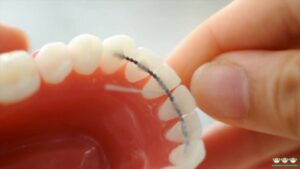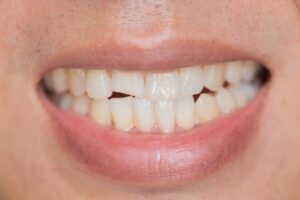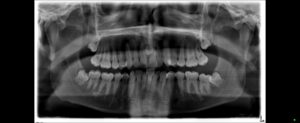Definition | Symptoms | Causes | Diagnosis | Treatment | Home Remedies | When to see a doctor | Takeaway
There are several hundreds of small bumps called papillae, also known as taste buds, on the surface of a tongue. Usually, these papillae are not noticeable, but sometimes they could enlarge due to one reason or the other. If you notice the development of bumps on the back of your tongue, you should consult your doctor immediately to control it before they start affecting your normal life.
What Are Tongue Bumps?
Enlarged papillae, mostly a short-term nuisance, can make your eating, swallowing, and talking painful. There are four types of papillae, namely filiform, fungiform, foliate, and circumvallate. Filiform papillae cover 2/3rd of the tongue and are responsible for the sense of touch. Foliate papillae line the side of the tongue and fungiform papillae help in differentiating temperature and flavor. Inflamed circumvallate papillae, located towards the throat positioned in a V-shape on the back of your tongue, usually heal automatically. However, spreading long-lasting bumps on the back of the tongue could be a sign of underlying disease. If you notice bumps on the back of your tongue, you should consult your doctor to seek a remedy.
Symptoms of tongue bumps
Papillae across the tongue maintain consistent color and texture, so any irregularity will be easily noticeable to the naked eye. Inflamed bumps will appear swollen, and sometimes may change color to bright pink, white. Here are some of the symptoms of bumps on the back of the tongue:
Taste Change: Taste buds are located on the top surface of your tongue, so you won’t feel the change in the test unless the inflation has spread wide. You might face difficulty in distinguishing sweetness, salty, bitter, or sour.
Movement Difficulty: Swelling of bumps on the back of your tongue will make it difficult to move the tongue normally. If inflammation persists for long, it could impair speaking and impact swallowing. Swelling of the tongue will make movement difficult.
Mild Pain and Sensation: In some cases, bumps on the back of the tongue could trigger a localized burning sensation. Although it is not acute, it is the primary sign of the immunological defense mechanism. Pain could increase during eating or speaking. Besides visible symptoms and pain, bumps on the back of your tongue could lead to the accumulation of fuzzy-looking coats on the surface of the tongue. If you notice any of the symptoms, you should consult your doctor to know about the reason as this could be the primary sign of other ailments.
Causes of tongue bumps
Tongue bumps are usually harmless, but the discomfort it causes affects day-to-day life as you will have difficulty in swallowing, eating, and speaking. It heals easily, but if it persists or recurs you should consult a doctor, specialized in oral health, to know about the cause as this could be as serious as oral cancer. Some of the common causes of bumps on the back of the tongue are:
Tongue Injuries: Just like any muscle of the body, the injury could cause swelling. The injury could be due to an accidental bite, burns caused by a hot drink. Injury-induced tongue bumps heal naturally or with simple real care medication.
Oral Herpes: Oral herpes, a common viral infection, affects millions across the US annually, and most don’t even experience symptoms. Cold sore blisters around the nose or mouth are a common visible symptom of oral herpes, which could be painful and last for a week or more. In some cases, blisters could develop on the tongue or gums. It is contagious and spreads through saliva, so oral hygiene is the best possible remedy.
Canker Sores: It is the most common cause of sores in the mouth. It grows on the inner side of lips and in some cases spreads to the tongue. Depending on the severity, it could be very painful, especially while eating acidic foods. The color of canker sores could be white, red, or yellow. The reason for canker sores is not very clear, but experts link it to nutrition deficiency and toxic accumulation.
Allergies: One of the common causes of bumps on the back of the tongue is the allergic reaction to certain food. The immunological defense could cause inflammation, and this could be immediate swelling of the whole tongue in some cases. If you notice allergic reactions, such as swelling, rashes, hives, or breathing difficulty you should immediately seek medical assistance.
Cancer: Although not so common, but bumps on the tongue could be cancerous tissue. It usually grows on the side of the tongue. If bumps are hard and painless, you should consult your doctor to get them tested.
Infections: Infection, whether in the mouth or any body part, triggers an immunological defense mechanism, which results in swelling. Mouth injuries exposed to bacteria could cause inflammation and pain, so you should consult your doctor if there is any injury. Bumps caused by infection could be painful. If you have a fever then it is a sign of serious infection.
Syphilis: It is a life-threatening bacterial infection, could cause bumps on the back of the tongue. Although treatable, one should get it examined immediately, especially if one came in contact with syphilis sores during oral, vaginal, or anal sex.
Oral Thrush: Oral thrush, a fungal infection in the mouth, can be the cause of bumps on your tongue. Yeast grows in a dark and moist place, and this could be your mouth. If your immune system is weak or you are on medication for serious conditions, or you are diabetic then the chances of oral thrush are very high. If you are noticing rough red or white spots on the tongue or lips with the sensation of dryness, then it could be due to oral thrush.
Lie Bumps: Transient lingual papillitis, also called lie bumps, are temporary inflammation of tiny bumps on the upper surface of the tongue. If bumps come with pain, itching, burning sensation then lie bumps could be the cause. Although symptoms go away in a few days, you can seek medical assistance to get rid of pain and extreme sensation early.
Diagnosis
The anatomy of the human mouth is very complex, so you will notice any change, even as minor as a tongue bump, very easily. If you notice symptoms of bumps development on the tongue you can wait for a few days and try home treatments, but if the pain is acute or you are feeling feverish you should visit your doctor for proper diagnosis and medication. Bumps heal normally, but if it persists for long, then it is better to get in touch with your doctor.
Treatment
In most cases, bumps on the tongue heal easily without any need for medical assistance. Your doctor will diagnose your case, and recommend suitable treatment to control the spread and mitigate the pain and sensation. If it is oral thrush, your doctor will prescribe antifungal medications. For bacterial infection, doctors normally recommend antibiotics, depending on your other medical conditions. Although herpes is not curable, doctors start antiviral medications to control the outbreak. Patients are told to follow prevention guidelines to control the spread. Nutrition imbalance and lifestyle issues could be the reason for tongue bumps, so you can prevent it from occurring by following a healthy lifestyle and eating a nutrient-rich balanced diet.
Home Remedies
Whatever is the cause of tongue bumps, you can start treatment at your home. Since bumps open muscle surface, here are some home remedies to control the pain and sensation:
- You should avoid eating spicy and acidic food to control sensation.
- Drink as much water as you can to detoxify your body.
- You can gargle with lukewarm saltwater.
- Rinsing the mouth with baking soda could be helpful.
- You can use oral numbing gels and canker sore medication available over the counter.
- Avoid anything that could dehydrate your body, like alcohol and sugary drinks, and snacks.
- You should avoid alcohol-based mouthwashes.
- Keep teeth and tongue clean by following standard oral care practices to keep bacteria and viruses away.
- If you use a steroid inhaler, then rinse your mouth thoroughly.
- Better stop smoking and chewing tobacco, if not possible control it as much as you can.
When to See a Doctor
In some cases, bumps might recur, if bumps are coming back again and again, then you should better consult an oral hygiene specialist so that he could diagnose it using suitable blood and other tests. Information regarding medical history, food habits, and allergies could be of great help in knowing the exact reason for bumps. If bumps on the tongue are hard and there is no pain, it could be a cancerous growth. It is better to get it thoroughly diagnosed so that suitable treatment could be started in time. If your tongue is swelling suddenly due to an allergic reaction then you might need medical assistance immediately as this could lead to anaphylaxis. So, if there are bumps on the tongue and you are experiencing difficulty in breathing, then you should consult your doctor immediately to control the situation before it is too late.
Takeaway
Tongue bumps are very common, and in most cases, it heals easily. Blame it on food habits, lifestyle, or nutrition deficiency; thankfully you can get rid of them in just a few days by maintaining proper oral care. But if bumps persist with pain and swelling, you should consult your doctor to know about causing factors. The bumps could be an early warning of underlying medical conditions, so ignoring tongue bumps is not a great move. So, consult an oral health expert at the earliest to live a healthy life.
Sources:
- Järvinen, Jaana, Jopi JW Mikkonen, and Arja M. Kullaa (2014). “Fissured tongue: A sign of tongue edema?.”
https://www.sciencedirect.com/science/article/pii/S0306987714001121 - Spielman, Andrew I., et al (2010). “Technique to collect fungiform (taste) papillae from human tongue.”
https://www.ncbi.nlm.nih.gov/pmc/articles/PMC3168239/ - Reamy, Brian V., Richard Derby, and Christopher W. Bunt (2010). “Common tongue conditions in primary care.”
https://www.aafp.org/afp/2010/0301/p627.html - Kawasaki, Katsushige, et al (2012). “Bmp signalling in filiform tongue papillae development.”
https://www.sciencedirect.com/science/article/pii/S0003996911003943



